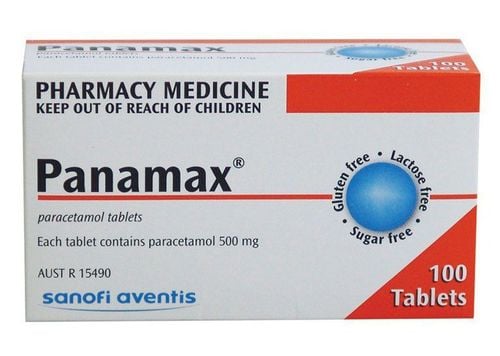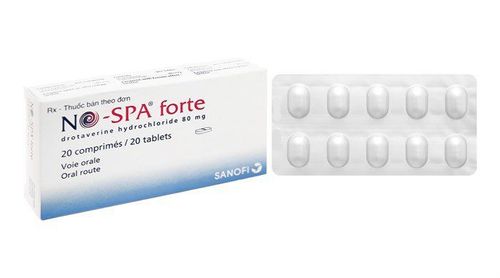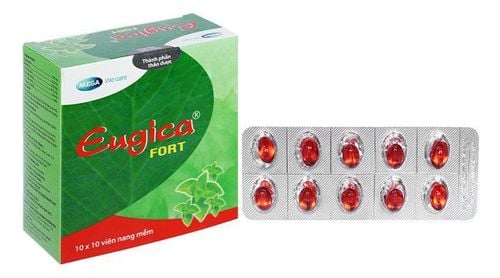Apotel belongs to the group of pain relievers, antipyretics, and non-steroidal anti-inflammatory drugs (NSAIDs). It is used to treat fever and provide temporary pain relief. So, what is Apotel used for, and in which specific cases is it applied?
1. What is Apotel medication?
Apotel medication contains the active ingredient Paracetamol 1000mg and other excipients sufficient to make up one tablet for the user. The drug is formulated as an intravenous infusion solution with a concentration of 1g/6.7ml, packaged in a box containing 3 vials.
2. The effect of Apotel
2.1. Effect - Indication
Mechanism of action: The drug works primarily by acting on both the central and peripheral nervous systems. It has the following effects and is indicated for the following cases:
- Provides fast pain relief for symptoms such as headaches, toothaches, earaches, and aches caused by the flu and fever.
- Helps reduce fever in certain cases, such as fever due to rheumatoid arthritis and other respiratory infections.
2.2. Contraindications
There are certain situations where Apotel should not be used:
- Individuals who are allergic or hypersensitive to the active ingredient Paracetamol in the drug.
- People with heart, liver, lung, or kidney-related diseases.
- Individuals with impaired liver cells.
- People with glucose-6-phosphate dehydrogenase deficiency.
Note: Contraindications are absolute restrictions, meaning there should be no flexibility in using the drug for these individuals, to avoid adverse effects on the body.
3. How to use and dosage of Apotel medication
How to use: Apotel is administered via intravenous injection for adults, adolescents, and children weighing over 33 kg. The infusion should be completed within 15 minutes using the Paracetamol solution.
Dosage: The dosage of Apotel must be prescribed based on the weight and condition of each patient. The following dosage guidelines can be referred to:
Dosage based on weight:
- For individuals weighing 33 to 50 kg: Use 1.5 ml/kg of body weight. The maximum daily dose should not exceed 3g.
- For individuals over 50 kg: Use 1g. The maximum daily dose should not exceed 3g to avoid the risk of liver toxicity.
- For individuals with severe renal dysfunction: Increase the time between each dose to at least 6 hours if the patient has a creatinine clearance rate of less than 30 ml/min.
- For individuals with liver cell dysfunction, malnutrition, dehydration, or alcohol dependence: The maximum daily dose should not exceed 3g.
In case of missed dose: Since the medication is administered by healthcare professionals, missed doses are rare. If a dose is missed, the patient should remind or notify the doctor immediately.
In case of overdose: Overdosing can lead to symptoms such as:
- Liver damage, resulting in conditions like cholestatic hepatitis, liver failure, severe acute hepatitis, and hepatocellular necrosis. Some cases may lead to death.
- Symptoms like loss of appetite, pallor, nausea, vomiting, and abdominal pain typically appear after 24 hours.
- Can cause liver cell destruction, leading to complete and irreversible necrosis or causing coma and death.
Emergency management:
- Immediately inform the doctor if any abnormal symptoms are suspected to be due to the medication.
- Before treatment, a blood sample should be taken to analyze Paracetamol levels in the plasma as soon as possible.
- Use N-Acetylcysteine as an antidote, either orally or intravenously, preferably within 10 hours.
- The patient should undergo liver function tests at the start of treatment and repeat daily. Typically, the liver will return to normal within 1 to 2 weeks and fully recover. However, in severe cases, a liver transplant may be necessary.
4. Side effects of Apotel medication
In addition to its effects of pain relief and fever reduction, Apotel may also cause some unwanted side effects in users, such as:
- Rash and allergies: Peeling, itching, hives, skin redness, mucosal damage.
- Overdosing the medication can lead to toxin buildup in the liver, resulting in liver failure and even death.
- In some cases, it may cause thrombocytopenia (low platelet count) and leukopenia (low white blood cell count).
- Anemia, nausea, vomiting, and disorders in blood formation.
- Rare cases may include increased liver enzymes and low blood pressure.
Note: If you experience any of the above side effects or any other side effects not listed in the medication’s instructions, you should immediately notify your treating doctor or the healthcare staff.
5. Drug interactions of Apotel medication
Apotel may interact with the following:
- Interactions with food and beverages: Alcohol, tobacco, and stimulants can reduce the effectiveness of the medication.
- Interactions with other drugs: Anticoagulants like coumarin, indandione derivatives, etc. Long-term high doses of Apotel can slightly increase the anticoagulant effects of these medications.
- Phenothiazine and antipyretic therapies: Using these drugs together may cause a sudden and severe drop in fever.
- Anticonvulsants such as phenytoin, carbamazepine, barbiturates: Using these drugs together can cause active substances to accumulate in the liver, leading to liver damage.
Note: To avoid unwanted interactions, during medical consultations, patients should provide full information about any medications or dietary supplements they are currently using so that an appropriate prescription can be made.
6. Some important notes when using Apotel medication
When using Apotel, patients should pay attention to the following points:
- Apotel is a prescription medication and is sold only with a prescription.
- Care should be taken to avoid confusion between mg and ml units to prevent overdose, which could be fatal.
- In addition to intravenous injection, the drug can also be taken orally, but an additional oral pain reliever may be needed.
- When using higher doses than the recommended ones, the risk of liver damage increases significantly. Antidote medication should be used as soon as possible.
- Patients with anemia should be cautious when using this medication as it may worsen the condition.
- Caution should be exercised when using Apotel in individuals with severe renal dysfunction, liver failure, chronic malnutrition, severe alcohol dependence, or dehydration. Alcohol, tobacco, and other stimulants should be avoided during treatment.
- The use of Apotel during pregnancy and breastfeeding should only be done under a doctor’s guidance.
- Older adults and children should be closely monitored, as they may be more sensitive to Apotel compared to the general population.
We hope the shared information about the effects, indications, contraindications, usage, and important considerations regarding Apotel will help users understand the medication better and achieve the best results when using it.
To arrange an appointment, please call HOTLINE or make your reservation directly HERE. You may also download the MyVinmec app to schedule appointments faster and manage your reservations more conveniently.








